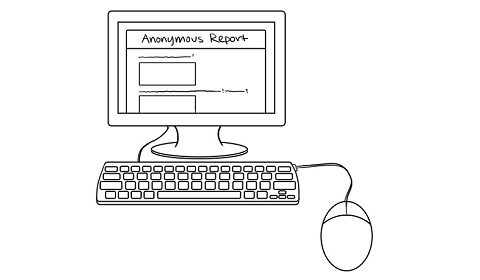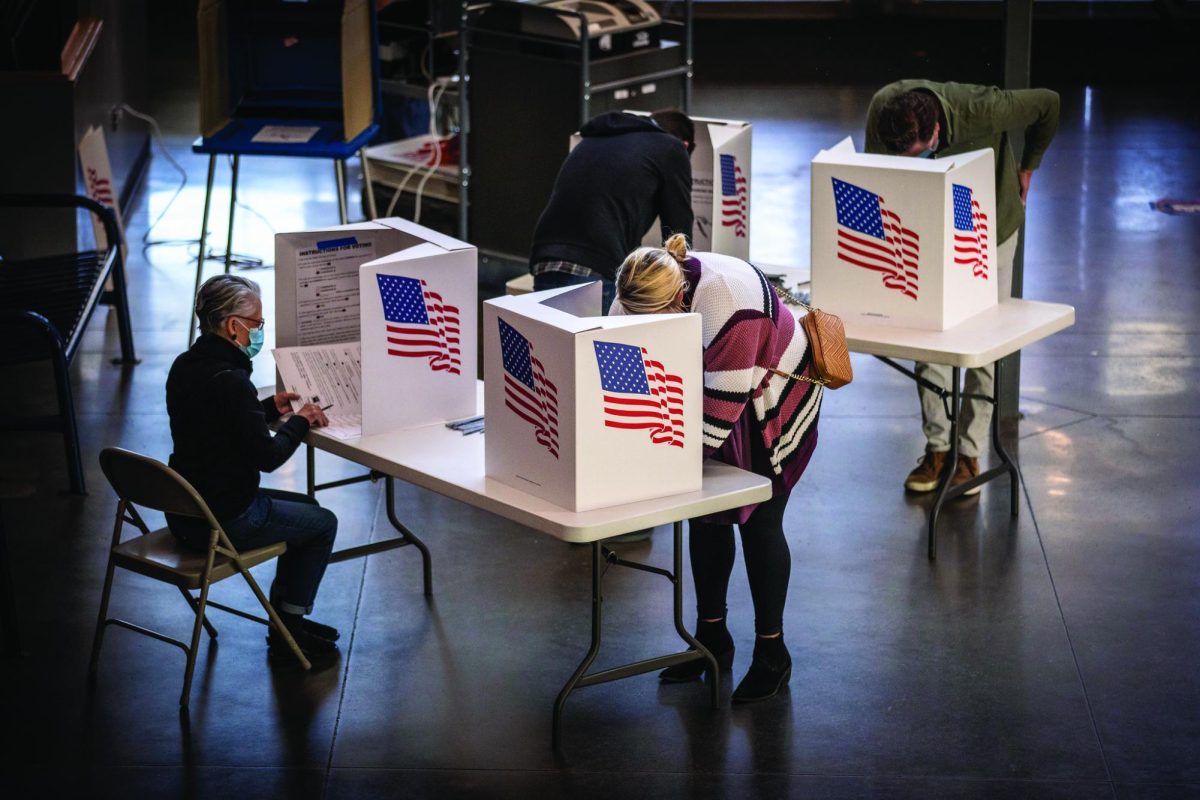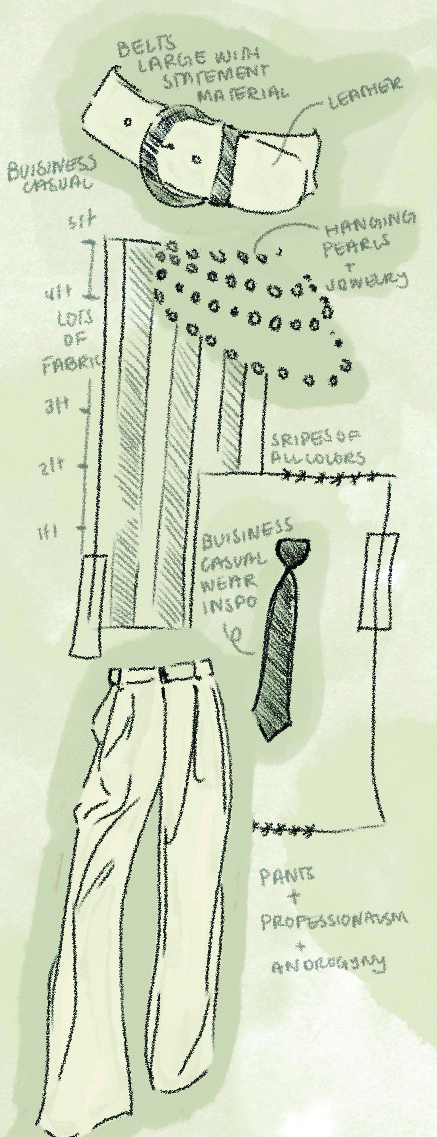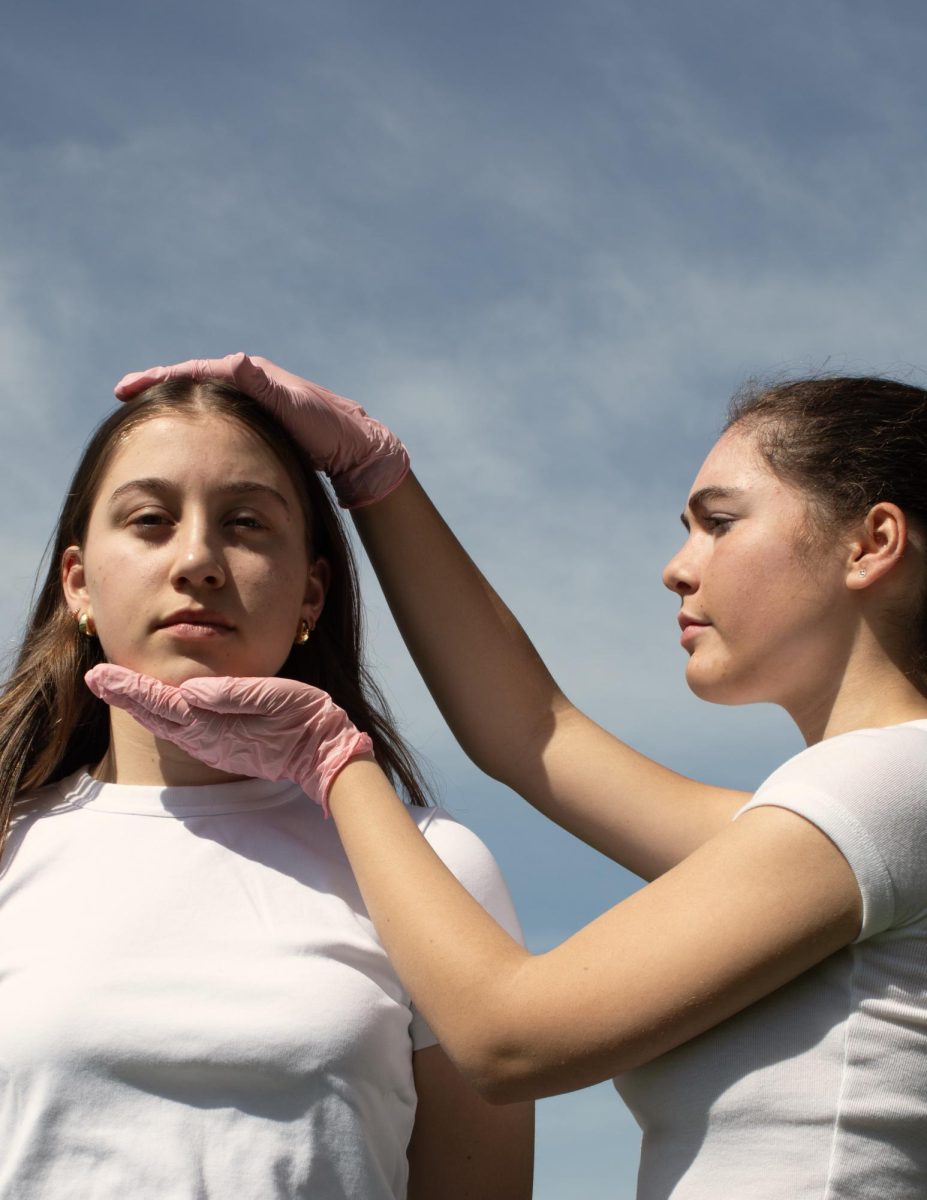
By: Lilia ’15, Ariella ’15 and Haley ’15
On June 30, XoJane.com published Mikaela Gilbert-Lurie ’13’s article accusing a Marlborough teacher of making inappropriate sexual comments and advances toward her during the 2011-2012 school year. In response to the article, students ranted on Facebook, parents called the School and the administration stepped into action to implement new policies. Once the frenzy began to simmer down, students, like Rachel ’15, had a realization.
“It became very clear to all of us that not only was there something very wrong with the [alleged] actions of [former Marlborough English instructor Joe] Koetters, but also with how Marlborough handled the issue of sexual harassment in general at school,” Rachel said.
At the beginning of this year, the administration implemented new policies and programs concerning sexual harassment. Head of School Barbara Wagner said that the School reviews policies each summer but that Gilbert-Lurie’s article directed the administration’s attention toward the School’s sexual harassment policies.
“We were in the midst of revising policies. This just gave us more focus,” Wagner said.
The administration drafted the new Student Anti-Harassment and Anti-Bullying Policy, which went into effect this fall. Drawing on elements of policies from schools across the country, the new document covers a broad spectrum of potential harassment and bullying cases, including verbal, visual and sexual harassment. The policy requires girls and faculty to report incidents of harassment and introduces the K12 Alerts anonymous reporting system.
“The School will take complaints seriously and will promptly and thoroughly investigate any good faith report or complaint of alleged harassment…All students and employees are expected to cooperate with any investigation authorized by the School regarding any alleged act of harassment,” the policy reads.
Students and administrators voiced agreement that the previous policy was not readily available or understandable.
“There were practices in place, but not as clearly defined policies as we would’ve liked,” Wagner said.
As the School community works to come to terms with Koetters’s alleged transgressions, many students have expressed that not only were policies unclear but discussions about sexual harassment on campus were nearly absent prior to this school year. How has the discourse changed? Does the community believe that the new policies will succeed in promoting the discussions that students hope to see?
LIMITED CONVERSATIONS
Though many students acknowledged that the School has had a sufficient number of All-School Meetings and class meetings dedicated to bullying, peer pressure and drug and alcohol safety, many remarked this fall that the School had placed minimal emphasis in recent years on sexual harassment besides in self-defense classes.
Many mentioned that they only discussed sexual harassment and sexual assault during their IMPACT self-defense course. According to Wagner, 80-90% of Marlborough girls in grades 9-12 take self-defense.
“I took self-defense last year, so that’s where I got all the conversations about sexual harassment, but other than that, I did not really hear [any sexual harassment discussions],” Valeria ’17 said.
Girls praised the course for preparing them to combat sexual harassment.
“[Self defense] gives you a lot of confidence, not necessarily in your fighting abilities but just in yourself like as a strong independent woman,” Michelle ’16 explained. “Getting to know yourself…is how you get that confidence and how you get in control of your feelings.”
Outside of the context of self-defense classes, many students could not remember a time until this school year when there was a visitor to campus who spoke specifically about sexual harassment.
“In my experience, there was almost no talk about sexual harassment. [There was] a lot of talk about bullying for sure, but sexual harassment was not something discussed,” Gilbert-Lurie said.
Many girls said that they wished that there had been more direct discussions about sexual harassment in light of Marlborough’s emphasis on the empowerment of women.
“I feel like as women [sexual harassment] pertains to us just as much as bullying and peer pressure [does],” Madeleine ’16 commented.
Physical education instructor Tinka Brown said that she thinks that the community rarely discussed sexual harassment due to the high level of trust and respect between teachers and students at the School.
“Marlborough has always had this community of being a safety net. We’ve got this safe environment. We’ve got this honor system. We feel safe in our little island,” she said.
Gilbert-Lurie suggested that the community did not concentrate on sexual harassment discussions because it was assumed that sexual safety would not be a concern at an all-girls school.
“I feel like it was taken for granted that [sexual harassment] wouldn’t happen,” she stated.
According to Assistant Head of School and Head of Upper School Laura Hotchkiss ’86, Marlborough had a student harassment policy that discussed teacher-student relationships, but it was not distributed in the same manner as the current policy and did not outline investigations and consequences in detail.
However, some students have said they were not aware that Marlborough had a sexual harassment policy or a contract about fireable offenses dealing with sexual harassment in place prior to the publishing of Gilbert-Lurie’s article.
“I assumed there was [a sexual harassment policy], but I didn’t know of one,” Sarah ’15 said.
INCREASING DIALOGUE
The publication of Gilbert-Lurie’s article has expanded school-wide discourse about sexual harassment. Hotchkiss said that while a school policy regarding sexual harassment existed before this summer, the policy needed to be brought up to date.
“[The policy] had been around for a while; it wasn’t a newly formed, last-year kind of policy. It certainly wasn’t as updated as the current one,” Hotchkiss said.
Marlborough’s new policy encourages the community to speak out about sexual harassment.
“While this topic may be difficult or uncomfortable to raise, the School expects its students and employees to report concerns of harassment promptly,” the new Student Anti-Harassment and Anti-Bullying Policy states.
Most girls have observed an increase in conversations about sexual harassment in comparison to previous years. Emily ’15 said that, due to the new policies as well as to students’ responses to Gilbert-Lurie’s article, students discuss sexual harassment more often.
Similarly, many faculty have witnessed increased emphasis on sexual harassment at school. In the week before school started, all faculty and staff participated in mandatory training sessions about sexual harassment, child sexual abuse and boundary-setting.
“I’ve certainly had a more heightened sense of language about [sexual harassment] now as a result of the increased focus on it and trainings,” English Department Co-Head David Long said.
Some students have commented, however, that the discussions have petered out since the beginning of the year.
“Besides the speakers at class meeting and then the first day of school when Ms. Wagner mentioned it,” sexual harassment conversations have not increased, Sydney ’16 said.
Some students perceive that teachers are reluctant to bring up sexual harassment in class.
“I feel like teachers don’t want to mention it because it puts them in kind of an awkward spot, which is totally understandable. I know that some teachers do mention it a little bit, but they don’t like to talk about it in detail,” Emily said.
GOING FORWARD
While the administration has worked to establish new guidelines dedicated to protecting students and teachers alike, many have said they wonder if the new efforts are enough to encourage healthy, safe discussions about sexual harassment.
The K12 Alerts anonymous reporting system is one tool that the School is employing to encourage students to report inappropriate behavior on campus. Hotchkiss hopes that the option for total anonymity will enable girls to feel safe reporting harassment or bullying.
“I’ve always gotten anonymous reports, or a student would come in and ask for their anonymity…but I’m interested to see if the anonymous reporting resource changes what we hear and how we hear it,” Hotchkiss said.
School counselor Emily Vaughn feels that the anonymous reporting system may give a voice to girls who have previously felt silenced, though she has some reservations.
“The more concrete observations we can have [about possible offenses], if you’re going to anonymously report, the better, because we don’t know who you are we can’t get back to you and say, ‘Well, could you tell us more about such and such?’” she said. “The more direct the asking for help is, the better we will be able to respond, though we will be able to respond any way we get that information.”
Izzy ’15 voiced her concern that students may abuse the anonymous reporting tool.
“I think the anonymous reporting will cause a lot of false reporting because [students] know their name isn’t attached to it so it kind of gives them more freedom to let loose more feeling rather than fact,” Izzy said.
Some alumnae have expressed appreciation for efforts to improve the frequency and frankness of sexual harassment discussions. Maya Horowitz ’12 said that, in general, girls should feel comfortable discussing harassment openly and without fear of backlash from the community.
“This shouldn’t be such a tough topic to talk about… we shouldn’t make these subjects so taboo,” Horowitz declared.
Gilbert-Lurie said that she believes that while the new policies are a step in the right direction, the School needs to make further changes to ensure the complete protection of students.
“I’m all for students having a really clear sense of their rights and who they can go to for help and having all that published and available,” Gilbert-Lurie said. “What I don’t love about it, I don’t love that [the sexual harassment policy is] so closely tied with bullying.”
According to Hotchkiss, who reviewed anti-harassment policies from several schools across the country, most schools combine anti-bullying and anti-harassment policies into one document.
“When looking at all the policies that I looked at, most schools had one policy. In most cases, bullying wasn’t even in the title of the policy. It was really just anti-harassment and then in the definition of harassment, there was bullying. We feel that there was enough differentiation that this needed to be anti-harassment and anti-bullying,” Hotchkiss stated.
Gilbert-Lurie thinks that grouping the two together detracts from the magnitude of the individual issues.
“The point is, Marlborough has a sexual harassment problem, not just a bullying and harassment problem. So it’s like a way of whitewashing a problem to make it go down easier but honestly it’s not effective unless you face the problem head-on,” Gilbert-Lurie said.
Hotchkiss said that she hopes that all members of the community will feel more comfortable discussing sexual harassment going forward.
“I think if we’re all thinking about this as we’re doing it for the safety of everybody and everyone’s intention is a good intention, then I would hope that it strengthens the community and doesn’t harm the community,” Hotchkiss said.
















